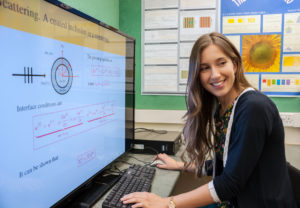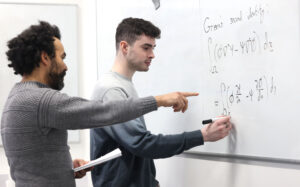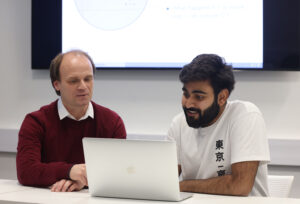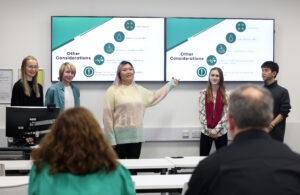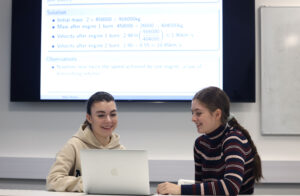How you'll learn
You’ll be taught through a diverse blend of engaging teaching methods, including lectures, tutorials, practical classes, video content, interactive learning sessions, independent study, and supervised project work.
The Department of Mathematical Sciences offers a vibrant, stimulating, and supportive learning environment with highly motivated and exceptionally qualified staff, renowned for their world-leading research and teaching.
In year 1, lectures are supplemented by a thorough system of small-group tutorials; computing work is carried out in supervised practical classes. Key study skills, presentation skills and group work start in the first year and are developed later in the programme. The emphasis in most modules is on the development of problem-solving and critical thinking skills, which are regarded very highly by employers.
How you're assessed
Each module has an assessment scheme tailored to fit its syllabus. This might include traditional written exams, class tests, assignments, projects, group work, or online exercises with automatic marking and immediate feedback.
Liverpool Hallmarks
We have a distinctive approach to education, the Liverpool Curriculum Framework, which focuses on research-connected teaching, active learning, and authentic assessment to ensure our students graduate as digitally fluent and confident global citizens.
The Liverpool Curriculum framework sets out our distinctive approach to education. Our teaching staff support our students to develop academic knowledge, skills, and understanding alongside our graduate attributes:
- Digital fluency
- Confidence
- Global citizenship
Our curriculum is characterised by the three Liverpool Hallmarks:
- Research-connected teaching
- Active learning
- Authentic assessment
All this is underpinned by our core value of inclusivity and commitment to providing a curriculum that is accessible to all students.

